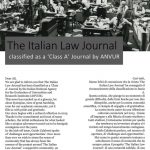This is a personal (and legal) article focusing on the effects of COVID-19 or “Coronavirus”; specifically, the issue of Force Majeure in contracts. Like many, my travel plans have been disrupted this week; this is minor, numerous people are ill, many have died, and the uncertainty over the true reach and the ability of governments to stem this epidemic grows by the day. It’s an unfortunate situation, to make an understatement, and that’s not to mention the economic effects of the current lockdown in Northern Italy, which are becoming increasingly apparent.

Cancellation of the Conference of the European Language Industry Association
Yesterday, I was supposed to be flying to Milan for the Elia (European Language Industry Association) Conference, and I’d been intensely looking forward to it; the chance to meet new colleagues and clients and greet old ones, and learn from them about developments in the language industry. I was also relishing the opportunity to have an excuse to take a few days off to explore Milan; it’s a city I don’t know so well- I used to live in Rome, and am more familiar with the Southern cities, especially Napoli, Bari, and Palermo. I was also looking forward to staying at the fabulous hotel, the Nhow in Tortona, where the conference was to be held.
Then Coronavirus exploded. On 23rd February, the board of Elia had no choice but to make the difficult decision to cancel the conference. Whilst this was incredibly disappointing, it was the only possible decision.
Coronavirus and Force Majeure

Now the issue is: aside from how to avoid contracting the disease, how business and travel plans currently in disarray might be salvaged and any monies expended recouped. The key issue is the extent to which Force Majeure (meaning superior force, and encompassing such matters as unforeseeable and uncontrollable acts of “god” or man) which may act to excuse parties from performing their contractual obligations, thus entitling consumers to refunds. It’s necessary here to note the difference between civil and common law jurisdictions, as well as how the virus is impacting the countries concerned, and the specific contracts. In English law, a force majeure clause will not be implied, and express clauses tend to be strictly interpreted. Furthermore, here in the UK, we fortunately haven’t borne the brunt of the virus in the same way as the Italians.
The situation is different, then in Italy; it’s been much more severely affected, with the closures of private and public events such as Fashion Week in Milan and towns across Northern Italy such as Codogno being completely quarantined, with police blocks guarding entry.
The implementation of new Italian laws regarding Coronavirus
On 25th February, the Region of Lombardy announced the issue of the DPCM del Presidente del Consiglio dei Ministri) (Decree of the Presidency of the Council of Ministers), placing limitations on movements across certain areas of Lombardy, although not Milan itself.
It’s understandable that tourist services such as hotels will be reluctant to provide refunds, especially for pre-paid rooms; after all, no-one knows for how long this situation may continue, and trade is being affected- that’s people’s businesses, jobs, livelihoods and ability to keep themselves and their families afloat.
However; one may well ask- if the explosion of the Coronavirus is not force majeure– well then, precisely what is? The basis of the right to claim reimbursement under force majeure lies in the impossibility of the purchaser of the service booked- albeit transport or lodging- being able to carry out the trip due to the services associated with the epidemic – a sudden and unpredictable disease that is currently spreading and which could not have been foreseen at the time of booking.
Many hotels have attempted to inform customers that the ordinances of the Italian authorities are merely “precautionary.” Having been informed this myself, I was amused to note that I doubted that the issue of the L’ordinanza del Ministero della Salute d’intesa con la Regione Lombardia was only to be considered a precaution. This is the issue, by the Ministry of Health, in agreement with the Lombardy Region, of an ordinance valid for the territory encompassing Lombardy which provides, until March 1:
- The suspension of events or initiatives of any nature, of events and of any form of meeting in public or private places, including those of cultural, recreational, sporting and religious nature, even if carried out in closed places open to the public;
- The suspension of educational services for children and schools of all levels up to the University, excluding trainees in the health professions and except for e-learning activities;
- The suspension of the opening of services to the public of museums and other cultural institutes and places.
The City of Milan has adapted to these provisions and, consequently, life in the city is very much reduced.
It certainly isn’t reasonable to expect tourists to continue with their trips as planned.
Then, that’s not to mention the fact that despite the measures in place, the Italian Government refuses to suspend the Schengen Agreement, so borderless travel continues, and the disease is spread.
An absurd situation: conflicting and confused direction from the UK authorities…..
For UK travellers, the situation is particularly absurd. The Foreign Office updated its advice on 25 February to advise “all but essential travel” to the isolated ten towns in Lombardy and one in Veneto.
Yet at the same time, UK travellers returning from northern Italy are required to “self-isolate”: for a minimum of two weeks– and they may not necessarily receive “sick leave” payment either.
With reference to the reimbursement of airline tickets, companies such as Easy Jet are digging their heels in and refusing reimbursement. As I’ve personally found, the company refuses to consider that the virus constitutes force majeure and across the Twitter platform, Easy Jet and other travel companies are facing mass accusations of placing profits above health and their contribution to the spread of the disease. It’s a fair allegation, but these companies have the power to stand immovable. It might be a different situation, however, for Italian citizens, who have the backing of Codacons, (Coordinamento delle Associazioni per la Difesa dell’Ambiente e la Tutela dei dirtto di utenti e consumatori – Coordination of associations for environmental protection and user and consumer rights), which has released a statement, providing that in light of the chaos, all those who had planned trips and wish to cancel them due to the virus have the right to reimbursement.
The situation can therefore now be classified as the impossibility of receiving the service for which the price or part of the price has already been paid, with the consequent termination of the contract, pursuant to Article 1463 of the Italian Civil Code.
It’s certainly complicated. Whilst it’s understandable that authorities wish to spare the global economy as much damage as possible and reduce panic, this lack of coordination and the contribution to the spreading of the disease is inexcusable. Now, as cases in the last hour alone jumped to 400 in Italy , and there’s currently no end in sight, here’s hoping that there will soon be a containment of this epidemic- and some real guidance from the authorities.




